ASIA WEEK NEW YORK ROLLS OUT AN 8-DAY EXTRAVAGANZA OF GALLERY OPEN HOUSES, AUCTIONS, MUSEUM EXHIBITIONS, LECTURES, AND SPECIAL EVENTS FROM MARCH 16-24, 2012
- NEW YORK, New York
- /
- February 02, 2012
For Asia Week New York starting on March 16, nearly three-dozen galleries will host simultaneous exhibitions to spotlight prized ancient, antique, and contemporary Asian artworks. International and Manhattan dealers will showcase an astonishing array of the best art from China, Japan, Korea, India, the Himalayas, and Southeast Asia. The rarest and finest Asian examples of porcelain, jewelry, paintings, ceramics, sculpture, books, bronzes, prints, photographs, and jades constitute the rich offerings at the 33 specialist gallery presentations, some of which are being unveiled to the public for the first time. With each participating show open to the public, Asia Week New York is organized to welcome Asian Art enthusiasts from around the world.
Carrying forth a mission to celebrate and promote Asian art in New York City, Asia Week New York 2012 is presented through a collaboration of Asian art specialists, auction houses, museums, and Asian cultural institutions in the metropolitan New York area. In addition to the simultaneous Open Houses hosted by 33 art galleries, Asian art auctions will be held at Bonhams, Christie's, Doyle New York, iGavel, and Sotheby's. At multiple locations, there will also be a variety of other special events related to Asian art, including lectures and symposia by leading experts in the field.
"Asia Week New York demonstrates just how vital New York has become as a leading center for the Asian art market," says Henry Howard-Sneyd, Chairman of Asia Week New York 2012 and Sotheby's Chairman, Asian Art, Americas. "In partnership with the renowned cultural institutions and auction houses, the thirty-three participating galleries will offer a unique and extraordinary week of activities and events."
To launch Asia Week New York on March 16, there will be a private, by-invitation-only reception at The Morgan Library & Museum. "We are absolutely delighted to have the opportunity to host this year's reception," says the Morgan's Director, William M. Griswold. "The Morgan Library and Museum's collection holds many surprises, and these include a number of Asian manuscripts and works of art. To celebrate Asia Week New York, we are pleased to share with the public several of the Morgan's fascinating but rarely seen Chinese objects."
Organized by category, Asia Week New York’s participating galleries are:
CHINESE ANCIENT THOUGH CONTEMPORARY ART
Ralph M. Chait Galleries, 724 Fifth Avenue, will present as its spring exhibition “A Selection of Fine Chinese Porcelain and Works of Art.” As the title indicates, the collection will feature a choice array of fine Chinese porcelain (Imperial and decorative), as well as jade, pottery, hardstones, and export silver. A notable standout: A fine, very rare Chinese Famille Jaune porcelain vase decorated with floral roundels and ancient dragons; from the Kangxi period, circa early 18th century.
As a first-time participant, Chambers Fine Art, 522 West 19th Street, will show “Seven-Layered Shell.” Included in the exhibition are large-scale installations by Wu Jian’an, one of China’s most celebrated emerging artists. For his creations, Wu Jian’an uses thousands of cut-out forms derived from Chinese mythology.
“Manifest Destiny” at China 2000 Fine Art, 434A East 75th Street, will feature, among other works, Abundance of Gourds, a hanging scroll. This large work by Shao Yixuan is a masterpiece of brushwork, rhythm, strength, and beauty, and is painted in his distinctive style. Shao Yixuan’s home in Beijing was once a noted gathering place in the 1920s for the most important artists, writers, and musicians of the time.
The Chinese Porcelain Company, 475 Park Avenue, will exhibit “Transcending Reality: New Ink Paintings by Tai Xiangzhou,” showcasing the works of rising artist Tai Xiangzhou. A student of famed artist Liu Dan since 2006, Tai is well-known for his dedication to ancient papermaking and for his exclusive use of 18th-century ink. His deft command of materials is evident in his landscape paintings, in which he reveals the romance between ink and paper. Last year Tai showed in Beijing, New York, Wiesbaden, and at the Sackler Museum at Peking University.
Joe-Hynn Yang, Courage & Joy, Inc., 3 East 66th Street, will present “Serene Glazes, Elegant Forms: A Select Exhibition of Early Chinese Ceramics.” The exhibition includes a pair of painted “Fat Ladies” pottery figures from the Tang Dynasty (617-906 AD). Figures of Tang nobility in the 7th and 8th centuries are often plump, an attribute that became fashionable at the Imperial Court because of the generous proportions of the Emperor’s favorite concubine.
Paris-based Galerie Christian Deydier, exhibiting at Galerie Friedman Vallois, 27 East 67th Street, will present “Treasures from Ancient China IV: The Marcel and Chantal Gerbe Collection.” Included will be a selection of rare archaic bronze vessels from the Shang (1600-1111 BC) and Zhou (1111-265 BC) Dynasties, as well as some beautiful three-color-glaze terracotta figures from the Tang Dynasty (618-907 AD).
In a departure from its traditional focus on Chinese porcelains, bronzes and paintings, Littleton & Hennessy Asian Art, a new participant with its gallery at 724 Fifth Avenue, will present “In The Valley is Silence,” an exhibition of 24 photographs by Singapore photographer Wee Kheng-Li. Printed on Japanese rice paper specifically produced for archival digital printing and in a limited production run, the images bear the artist’s personal seal made of cinnabar paste. The photographs are mounted on traditional Japanese-size scrolls for hanging in a tokonoma, the alcove found in traditional Japanese homes. Shot with a Leica M8 digital camera, the images were made in the Yanaka district, the oldest neighborhood in Tokyo.
Showing at Mark Murray Gallery, 39 East 72nd Street, Michael C. Hughes LLC will present “Asian Art: Recent Acquisitions,” a number of exceptional and unique pieces ranging from the intimate to the monumental in size. This year, Hughes’ emphasis is on two-dimensional, rather than three-dimensional art, exemplified by a rare two-sided Indian painting, dating from the 17th century, with one side depicting a Muslim nobleman offering a greeting before an armed retinue.
With its “Magnificent Obsessions: China and Japan” exhibition, Kaikodo, 74 East 79th Street, introduces uncommon and unique works to Asia Week, including a large archaic Chinese bronze from the Eastern Zhou Dynasty. One of the most important pieces on view is The Ten Bamboo Studio, a rare three-volume set of first-edition pictorial leaves, dating to the Ming Dynasty. It is the most complete example known of the original edition, with all but one pictorial and one poetry leaf. The exhibition also includes an album of flowers, animals, and figures by Ogata Korin, one of the most significant Japanese artists of the 17th century.
J. J. Lally & Co. Oriental Art, 41 East 57th Street, presents “Silver and Gold in Ancient China,” a collection of rare gold and silver vessels, jewelry and objects made for use by the elite, for tribute, and for Buddhist rituals. Over the centuries, war, natural disasters, economic troubles, and changes in fashion, all of these factors have taken their toll on silver and gold objects, most of which were lost, stolen, or melted down. Consequently, ancient Chinese silver and gold are far rarer than ancient Chinese ceramics, jade, or bronze. This exhibition is the largest of its type ever mounted in an American gallery. An exceptionally rare piece in the show is an elaborate openwork Buddhist stupa-form reliquary, which bears a dedicatory inscription as well as a Chinese reign date corresponding to 986 AD.
Pace Prints, 32 East 57th Street, will present its inaugural Asia Week showing with “Chinese & Korean Contemporary Prints—Fang Lijun, Lee Ufan, Yue Minjun and More,” an exhibition of contemporary, limited-edition prints and multiples by 14 artists from China, Japan, and Korea. The featured piece will be The Grassland Series Woodcut 1, Diving Figure by leading Chinese artist Yue Minjun, and also included are woodcuts, known as ukiyo-e, by preeminent Japanese artist Yoshitomo Nara, and monoprints by Qin Feng.
M. Sutherland Fine Arts Ltd., 55 East 80th Street, will highlight traditional media (ink and color wash on paper) for its exhibition: “Contemporary Chinese Ink Paintings,” a showcase that will be a Who’s Who of Chinese masters. Zhu Daoping, a Nanjing-based artist, is known for ethereal landscapes such as Enjoying the Scenery in the Autumn, which shows off his striking style of repetitive patterns of color and ink. As a master of the tarashikomi technique, Jia Youfu is esteemed for controlling color and ink as no other. Taking a modern perspective, Hsu Kuo-huang is known for mixing thousands of years of literary tradition for his amalgamations of poetry, calligraphy, and painting.
London-based new participant Jonathan Tucker Antonia Tozer, exhibiting at Arader Galleries, 1016 Madison Avenue, will present “An Important Private Collection of Southeast Asian Bronzes and Chinese Tomb Sculptures.” A highlight will be a rare painted-pottery tripod vessel from the Han Dynasty (206 BC-220 AD). The cylindrical body, which is raised on three conical supports and is encircled by a wide red band with traces of white pigment above and below, depicts acrobats doing handstands while balanced on the rim. The handle is formed by their joined feet.
Zetterquist Galleries, 3 East 66th Street, Suite 1B, celebrates a milestone with its “Twentieth Anniversary Exhibition: Sui-Yuan Dynasty Chinese Ceramics,” a special presentation of Chinese ceramics from the Sui Dynasty (581-618 AD) through the Yuan Dynasty (1271-1368 AD). Every piece in the exhibition represents the highest quality of its type and was selected for its rarity and beauty of form and surface. The purity and soulful radiance of the glazes rank among the highest achievements in art history. The exhibition will offer the public an opportunity to view rare and exquisite examples of celadons, Jun-wares, Ding-wares, and important Yue- and Guan-ware vases.
INDIAN, HIMALAYAN, AND SOUTHEAST ASIAN WORKS OF ART
Heralding from Daverio, Italy, Carlo Cristi will present “Tibetan and Indian Arts—Central Asian Textiles” as its exhibition this year, held at Arader Galleries, 1016 Madison Avenue. Focusing on recent acquisitions of Tibetan and Indian art and Central Asian textiles, the show will feature a 15th-century Yongle bronze of Mahakala from Tibet alongside a display of early Nepalese bronzes from the 10th to 12th centuries. Rare among the bronze representations of the Yongle period, this Mahakala is superbly modeled and finely detailed. Also on view is an equally important group of 7th- and 8th-century silks from Central Asia.
Milan-based Dalton Somaré, showing at Pace Gallery, 32 East 57th Street, will exhibit “Images from the Hindu and Buddhist Pantheon,” which will include a large image of Vajrasattva from the 14th/15th century. The use of semiprecious stones and the graceful pose indicate that this elegant bronze was made by a Newari artist for a Tibetan patron.
Arnold Lieberman Buddhist & Hindu Antiquities, 311 East 72nd Street, will showcase some exceptional recent acquisitions. Among them: A powerful Pala sculpture of Kurukulla; a colorful 13th-century thangka of Medicine Buddha; a sinuous red-stone apsara from 10th-century Rajastan; and an exquisite small painting of White Tara. There will be other distinctive objects as well, primarily from South Asia and the Himalayan regions.
London-based Oliver Forge and Brendan Lynch Ltd., 9 East 82nd Street, will present “Indian Painting, 1600-1870,” an exhibition that includes Bullocks Driving a Waterwheel to Irrigate a Garden, circa 1760. Painted in opaque watercolors on paper, it was created at the Guler Court in the Pahari Hills of the Himalayas and was formerly in the private collection of Carter Burden (1942-96) of New York City. An almost identical version of this painting is in the British Museum.
John Eskenazi Ltd., from London and showing at Adams William Fine Art and Moretti Fine Art, 24 East 80th Street, will present outstanding sculpture with a “Recent Acquisitions” exhibition. A notable work will be a sublime terracotta head of the Buddha dating from the 4th/5th century. From Gandhara, the artwork was likely part of an elaborate temple tableau that purported to offer a devotee a glimpse of heaven.
Exhibiting at Leslie Feely Fine Art, 33 East 68th Street, Francesca Galloway joins Asia Week from London and will show “Indian Miniatures & Courtly Objects: Recent Acquisitions.” The exhibition will feature depictions of yalis, mythological felines represented in various media and seen mainly in Hindu temples in South India as well as other parts of India. Behind the roughly cast iron yali—shown here grasping tiny elephants within its claws, tail and mouth—is a silk pane, thought to have been woven in East India in the 15th century.
Kapoor Galleries, 1015 Madison Avenue, will present “Images of Divinity,” works from India, Nepal, and Tibet showcasing paintings, bronzes, and stone sculpture of deities, demigods, and divine beings. The theme of the show is divinity in its various forms, from Gods to hallowed emotions like love. Highlights from the show include the earliest known Nepalese paubha of a Vasudhara Mandala. This magnificent work is dated to 1365 and is signed by Jasaraja Jirila. Another masterpiece on view is a folio from the Gita Govinda series, attributed to a master of the first generation after Nainsukh, from the Kangra School, circa 1780. This lovely painting depicts Krishna and Radha in loving embrace amid a lush floral landscape near the banks of the Yamuna River. Both masterpieces come from the collection of the preeminent scholar Stuart Cary Welch.
London-based Susan Ollemans Oriental Art, showing at this year at Valentina Gallery Inc., 960 Madison Avenue, will exhibit “A Jeweled World: Jeweled Objects from India, China, Burma, Vietnam, Cambodia, and Indonesia.” Headlining the show is a fine pair of gold anklets with shanks inlaid with rubies, diamonds, and emeralds in the Kundan style. The finials are a pair of tiger heads, which resemble those in Tipu Sultan’s court (1750-99).
Carlton Rochell Asian Art, 121 East 71st Street, will hold an exhibition of 25 sculptures and paintings from India, Tibet, Nepal, and Cambodia at his new gallery location. “Indian, Himalayan, and Southeast Asian Works of Art” will draw from prestigious private collections in both the United States and Europe. Highlights include a double-sided, mottled-red sandstone Yakshi bracket from the 2nd century AD, as well as a majestic 10th-century Chola bronze from South India depicting Shiva as Chandrashekhara. A symbol of healing and fertility, Shiva is the Hindu deity who acts to renew and regenerate the spirit and the greater universe.
Joining Asia Week from London and exhibiting at C. G. Boerner Gallery, 23 East 73rd Street, John Siudmak Asian Art will present “Indian and Himalayan Art,” featuring a brass Vajrasattva with copper and silver inlay, dating from the 11th century. Though Buddhist art in Kashmir was in decline at the end of the 10th century, heavy demand in Western Tibet led to its resurgence in monasteries like Ta-bo and Tholing, where it underwent modification owing to contact with Pala artists from Northeastern India. Most of the surviving art from these locations consists of wall paintings and painted clay images, making small-scale bronzes like this rather rare.
Related to an important group of 11th-century Khmer bronzes—including works in the collections of the Metropolitan Museum of Art, Cleveland Museum of Art and National Museum of Cambodia in Phnom Penh—this rare kneeling-male figure from Nancy Wiener Gallery, 39 East 78th Street, embodies the highest level of Khmer bronze sculpture. Clothed in a pleated sampot, the figure displays a neck, upper arms, and wrists adorned with jewelry. The deeply incised eyes, eyebrows, and moustache likely once held silver and semi-precious stones. Seated in a posture suggesting the role of devotee, the figure has a plaited coiffure intricately entwined with jasmine blossoms and embellished with remnants of gold.
Showing at the Tambaran Gallery, 12 East 82nd Street, Hong Kong-based Michael Woerner Oriental Art Ltd. will present “Recent Acquisitions,” which includes works from European and Asian private collections as well as sculpture and paintings from South and Southeast Asia. Highlights are a monumental limestone head of a Dvaravati Buddha, which is exceedingly rare on the market; a powerful bronze bell with a human face from the Dong-son Bronze Age culture; and a spectacular 18th/19th -century Indian pilgrimage map of Benares, acquired from a Swiss collection.
JAPANESE AND KOREAN ANCIENT THROUGH CONTEMPORARY ART
On display at Hollis Taggart, 958 Madison Avenue, will be “A Slice of China: Study of Chinese and Japanese Ceramics,” presented by Dai Ichi Arts Ltd. The exhibition will feature a contemporary interpretation of Jomon, the ancient pottery form that goes back 3,000 years. Created by the artist Omori and made of coiled clay, the piece pays tribute to one of the oldest hallmarks of Japanese civilization. Omori previously made simple ceramic pieces with black clay but has recently been inspired by the decorative ceramic pots from Japan’s pre-historical eras, interpreting the dramatic forms and dynamic expressions for his own creations.
KooNewYork’s “Portraits & Pantheons in Korean Art” will be on view at Mark Murray Gallery, 39 East 72nd Street. The exhibition will offer a rare opportunity to see extraordinary portraits of late Joseon Dynasty (1392-1910 AD) civil court officials, Buddhist priests, and deities. Assembled from various private Western collections and in their inaugural unveiling, these extant examples are rendered as full-length scrolls, album paintings, and wooden sculptures. Featured are Buddhist Guardian and Horse Deities, a colorful matching pair of Korean paintings on silk with gilt details, from the private collection of Jean and Ugo Tori.
Joan B. Mirviss Ltd., 39 East 78th Street, will present “Approaching the Horizon: Important Japanese Prints from the Collection of Brewster Hanson,” an exhibition of particularly fine impressions. Among them: Some of the most coveted designs by Katsushika Hokusai, such as Amid a Waterfall on the Kisokaido, as well as masterworks by Hiroshige, Eisen, and Yoshitoshi. Assembled from acquisitions made around the world, the prints from this important collection are being offered for the first time ever.
The Kang Collection, 9 East 82nd Street, will commemorate Asia Week New York with the exhibition “Divine Beauty: Buddhist Art of Korea,” which will focus on religious and spiritual artworks from the Joseon Dynasty (1392-1910 AD). Among approximately 25 artworks, the highlight of this show is Dragon Amid Clouds, from the late 19th century. The dragon represents the water deity who brings rain and thus an abundant harvest and who protects people from misfortune and disaster. Unlike dragons in the West, those of Asia are considered benevolent animals, a symbol both of the East and of rulers.
Scholten Japanese Art, 145 West 58th Street, will exhibit “Sacred Sutras and Profane Pledges.” Among the offerings will be a number of woodblock prints that feature either poetry or references to poetic themes. At right is Haku-gire, attributed to Fujiwara no Tameie of the 13th-century Kamakura Period. It is an image from the “Koi Jo” chapter in Volume VII of a now-dispersed Kin’yo Wakashu (Collection of Golden Leaves). This exceptional piece is in ink on paper, embellished with silver, gold, and album leaf, and is mounted as a hanging scroll.
Erik Thomsen, showing at his new gallery location at 23 East 67th Street, will present “Japanese Paintings: Screens and Scrolls from the 17th through the 20th Centuries,” an exhibition that includes Plovers Flying Over Waves by Suzuki Kinji. On a two-panel screen, Suzuki depicts chidori (plovers) flying over foamy waves, a classic motif usually depicted with the sun and with craggy rocks in a stormy sea. The scene references a poem in the famous poetry anthology Kokin Wakashū and uses the plovers flying over the ocean as a poetic allusion to the wish for a long rule.
Kyoto-based Hiroshi Yanagi Oriental Art, located during Asia Week New York at Arader Galleries, 1016 Madison Avenue, will show “Sacred Traditions and Renewed Visions: Selections of Japanese Art.” The exhibition will feature traditional, early-Modern, and contemporary Japanese masterworks. Other items in the exhibition: Important Buddhist sculptures that represent Japan’s religious arts from the Heian to the Meiji Periods (12th to 19th centuries), including an eight-armed Benten crafted from hinoki wood and bearing pigments. There will also be outstanding screens and scroll paintings by renowned masters such as Matsumoto Sansetsu, Hon’ami Koetsu, Hakuin, Soga Shohaku, Nagasawa Rosetsu, and Shibata Zeshin, among others.
Together featuring thousands of works of art, the diverse exhibitions during Asia Week New York 2012 will provide an exceptional opportunity to view and enjoy Asian art of the highest caliber. For additional information, visit: www.AsiaWeekNY.com

270x400_c.jpg)

100x100_n.jpg)
100x100_c.jpg)
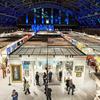

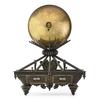



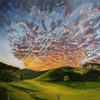
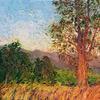
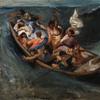
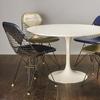


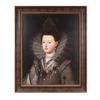
100x100_c.jpg)